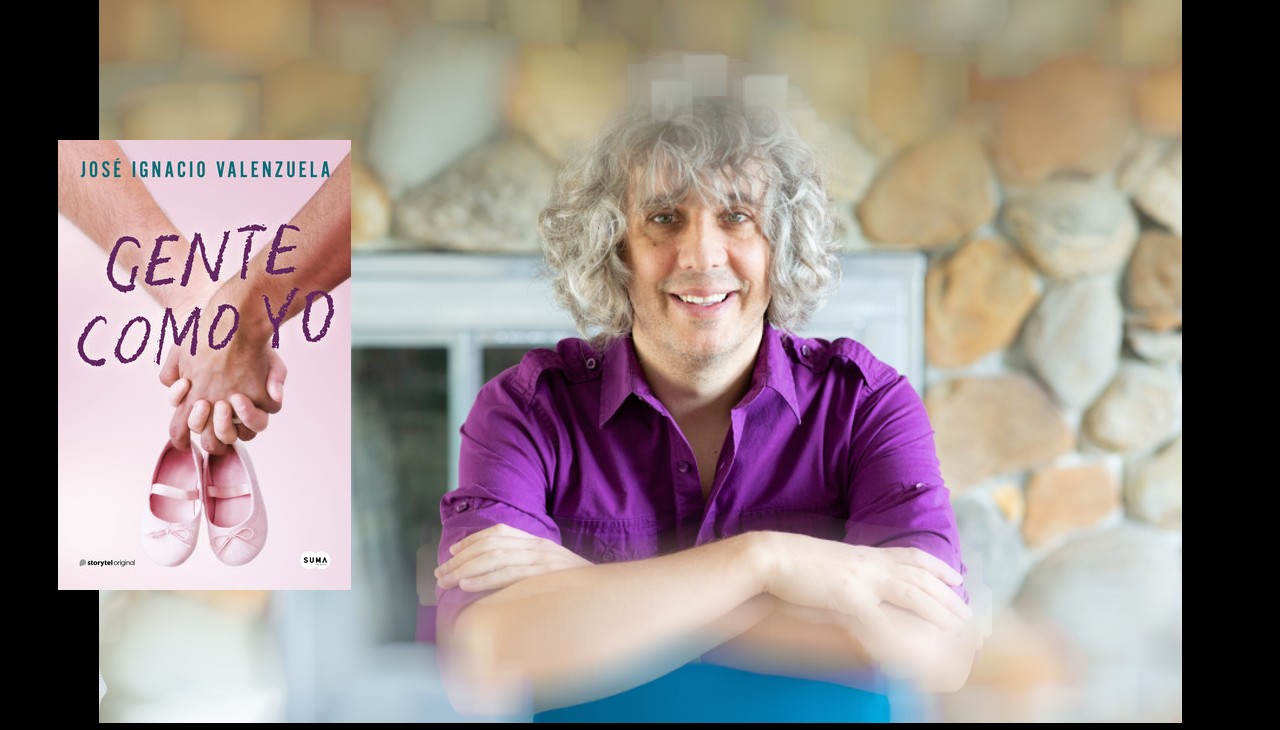
'People Like Me,' the challenges of becoming parents as a gay couple in Miami
Miami-based Chilean author José Ignacio Valenzuela tells an intimate story about the struggles in his latest book.
José Ignacio Valenzuela, better known as 'Chascas,' grew up in Chile in the 80s — a country plunged into dictatorship, “a country quite black and white, where there was not much access to bookstores and libraries.” That’s why, while studying literature at university, he decided that he would become a writer and write all those books he would have liked to read, at five, seven, 12, 14 years old...
“Writing for young people was a kind of revenge with life,” explained the renowned Chilean author and screenwriter now based in Miami.
Known mainly for his young adult novels and his telenovela scripts — among which are Quién mató a Sara and Donde hubo fuego — Chascas just published a novel for adults: Gente como yo (People Like Me), in which he wanted to capture a “very powerful, very intense” love story. It's that of a gay couple who decide to dream of the possibility of being parents, and how society and life in general, despite the advances that have been made for LGBTQ+ inclusion, still punishes or harshly judges two men or two women who want to be parents.
“I wanted to try to resolve, at least in my head, that dilemma and that conflict,” explained Chascas in an interview with AL DÍA from Miami, where he lives with his male partner and their four-year-old daughter.
The protagonists of People Like Me are Mauricio, a handsome and sensitive Mexican who dreams of becoming a great photographer, and Jimmy, a university professor and passionate about politics, who live in Miami. They fall in love and, after 13 years of a solid life as a couple, Jimmy poses the challenge of becoming parents and starting a family. The idea is to adopt a baby, but they know that society will not make it easy for them.
“I know that my book is awakening a generalized feeling of indignation and surprise among my readers: ‘how can it be that in the XXI century questions such as love between two people of the same sex, or that they want to be parents, or can change the life of a child simply because of prejudice or homophobia, are being discussed?’” he explained. “Readers realize what it is like to live without the most basic rights.”
The book also addresses all the issues related to adoption in the U.S.
RELATED CONTENT
“In a very direct and straightforward way, I explain how complicated it is to adopt, and even more so for a homosexual couple, due, for example, to the adoption conditions set by the countries of origin. This was not the case before. China, India, Russia used to be countries that were very allied with the LGBT community, and since a few years ago it is no longer so, making the possibilities of adoption very difficult,” regretted the Chilean author, who has been living outside his country for more than 30 years.
A critical look
Each of the places where he has lived have marked him in a different way. “Chile was my base, that’s where I was formed as a writer. Mexico opened me to the world, to a much more international writing. New York gave me the intensity and Puerto Rico gave me the skin, the body, the sensuality, the senses,” he said.
In Miami, his adopted home, his literature “has been contaminated, in a good way, by other contexts and points of view. It’s a very global place, very diverse, a real melting pot of different cultures’, he explains. And it is in Miami, and in general throughout Florida, ‘a state that is currently going backwards in leaps and bounds in terms of LGBTQ rights,’” where he would especially like his book to generate some discussion or commentary.
“I want it to be read as a critical look at how a gay couple experiences homophobia and lack of freedom, in Florida especially,” he insisted.
Although his day-to-day life in Miami runs happily between his routines as a writer and father of a four-year-old daughter, as a Latino in Florida he feels “terrible.”
“It seems to me that this state is becoming a laboratory of international neo-fascism. We have a governor who thinks he is a dictator, who increasingly restricts educational freedoms and personal liberties, who is in a declared war against evolution, against the black and LGBT community, against teachers, against the trans and drag queen community, against anything that represents a degree of freedom,” he said.
“As a gay man and a member of a single-parent family,” he concluded. “I am watching in horror as we are going back years and decades in terms of rights.”












LEAVE A COMMENT: